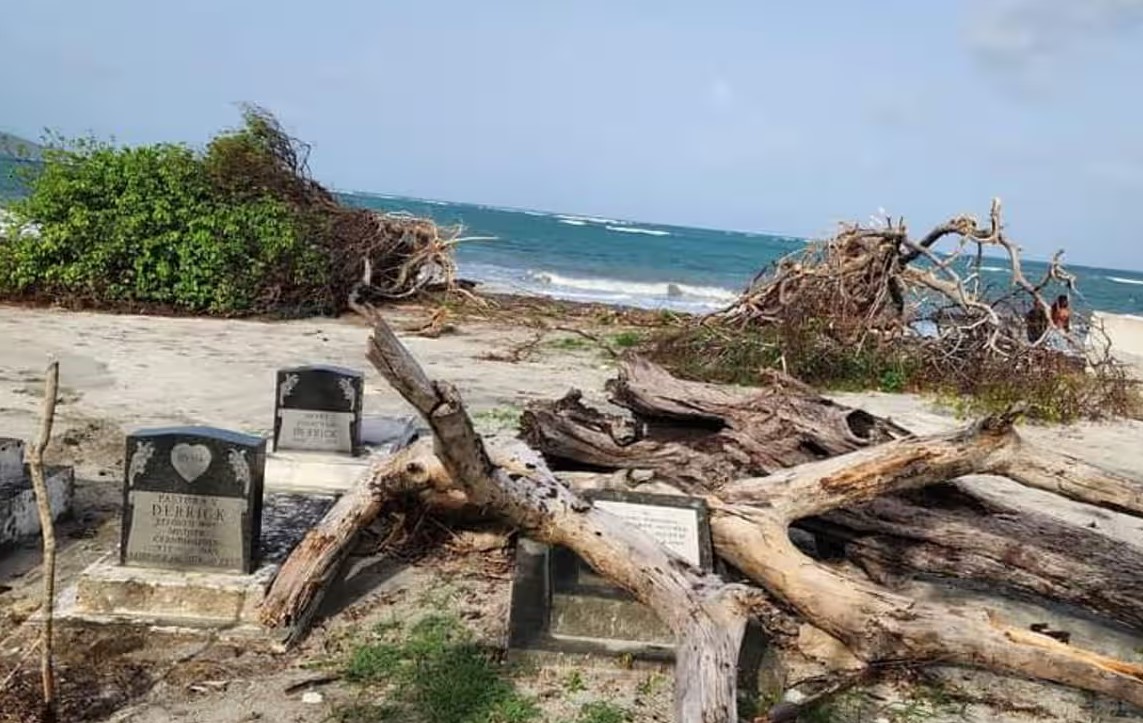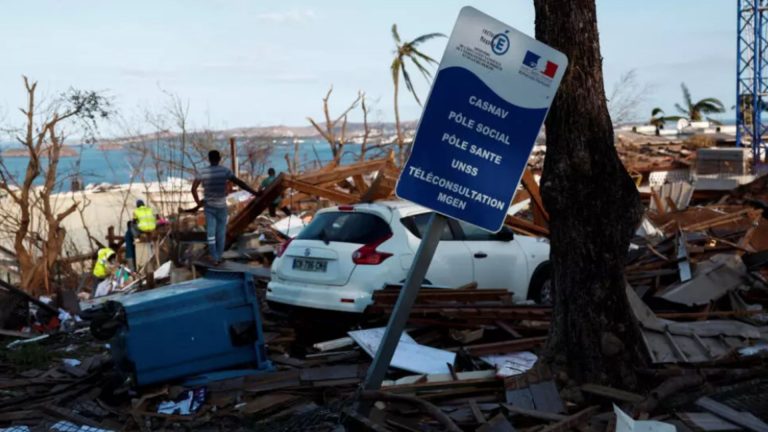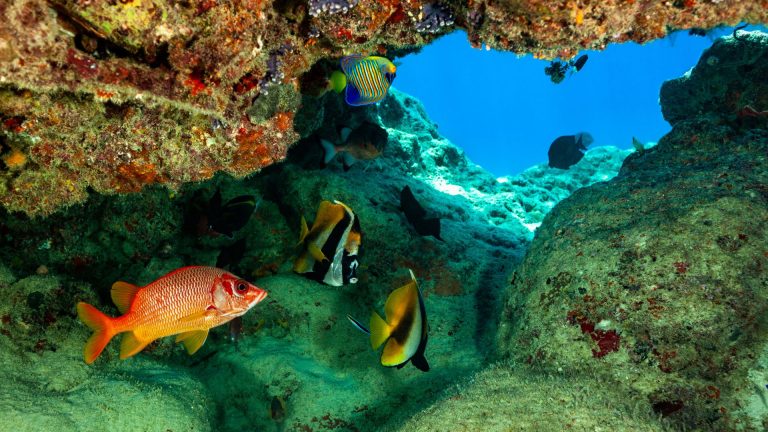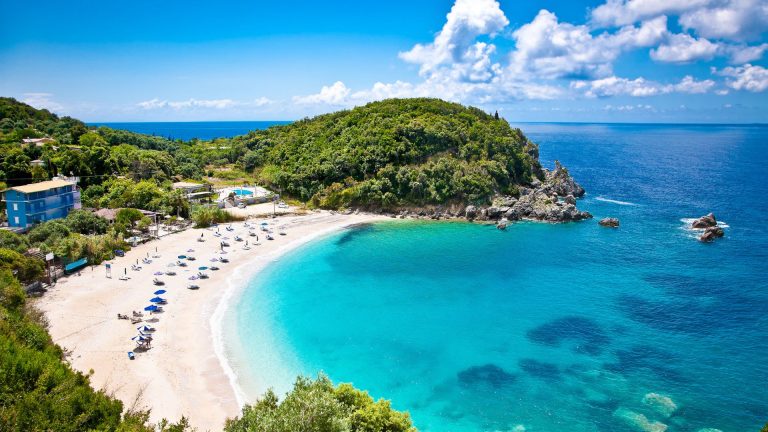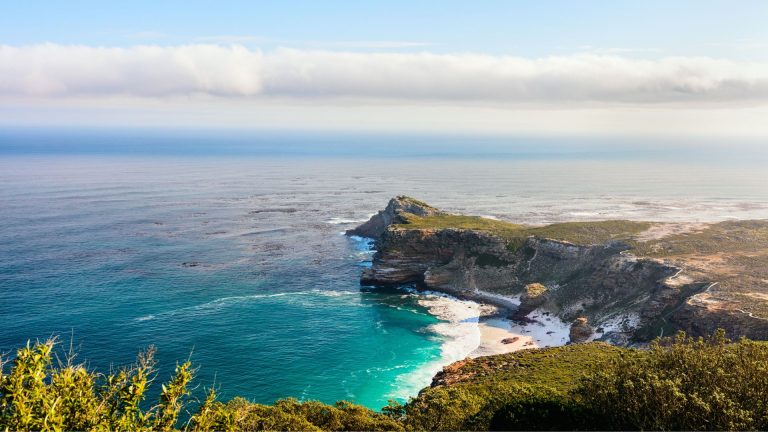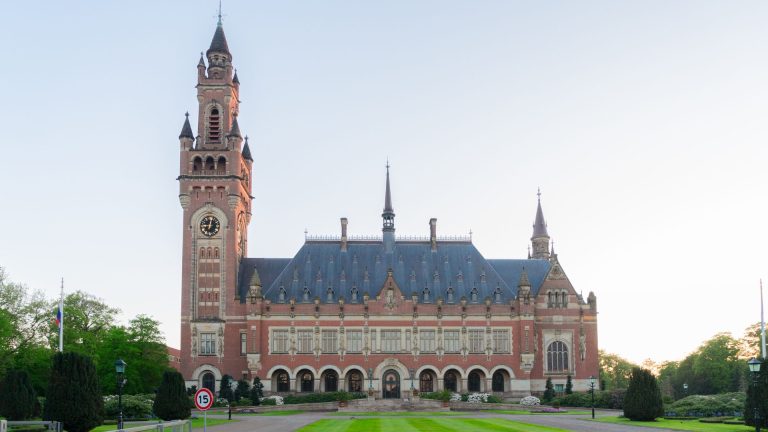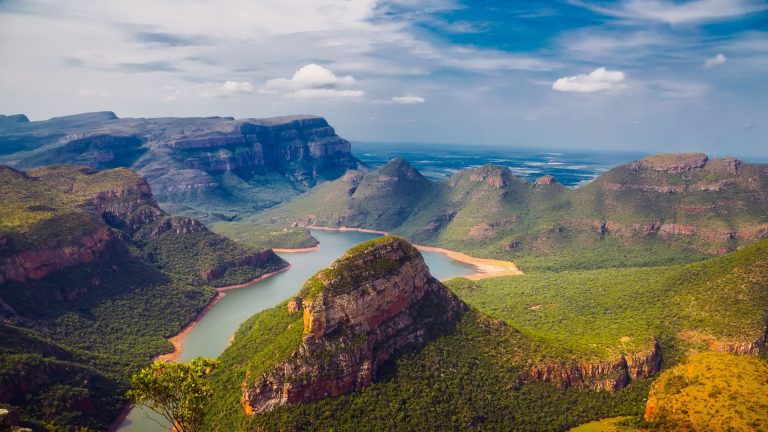Photograph: Kennisha Douglas. Retrieved from theguardian.com
Excerpt from theguardian.com
It’s a macabre picture: tombs, headstones and wreaths, lovingly selected by family members, floating into the oblivion of the ocean, and with them the remains of loved ones uprooted from their final resting place. Some are dragged back to land, washed up on beaches on the Grenadian island of Carriacou, transforming the beautiful Caribbean shoreline into a chaotic graveyard.
This disturbing reality, says Grenada’s prime minister, Dickon Mitchell, is a poignant example of the gravity of the climate crisis and its impact on his country.
“Because of the rise in sea level, the Tibeau cemetery where the ancestors of our citizens in Carriacou are laid to rest has essentially gone out into the ocean. So you appreciate that in a sense, both from a spiritual and ancestral perspective, even the dead are now victims of climatic changes,” he told the Guardian. “This goes to the very core of people’s spirituality, their sense of comfort, and their sense of connection with the past. It creates a lot of stress and trauma for people because they question what future they have.”
The plight of the Tibeau cemetery is being presented as evidence of the worsening crisis facing vulnerable countries in the Caribbean in climate justice proceedings being considered by the international court of justice (ICJ). The case, which opened on Monday, seeks clarification on what states can be held liable for in relation to climate change.
It has attracted the attention of numerous countries and organisations, with a record 91 written submissions lodged for consideration before this week’s landmark oral hearings in The Hague.

